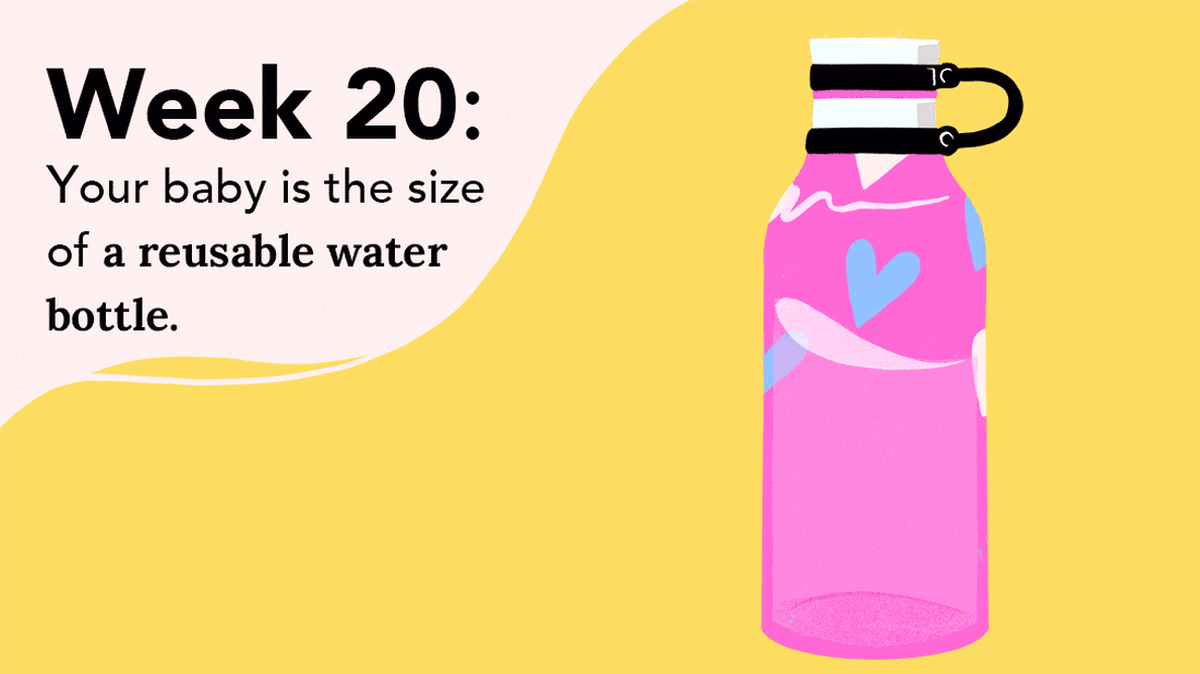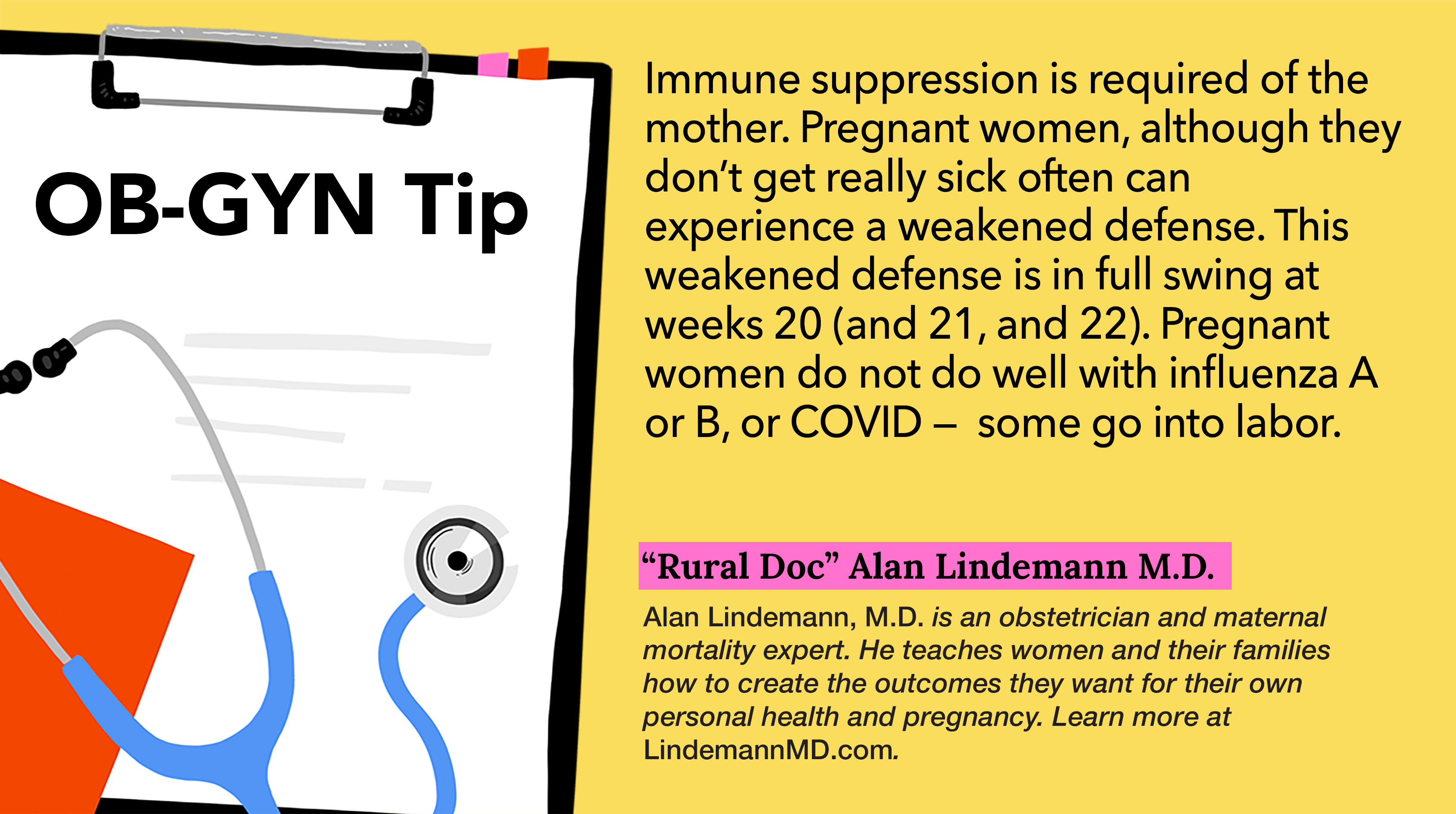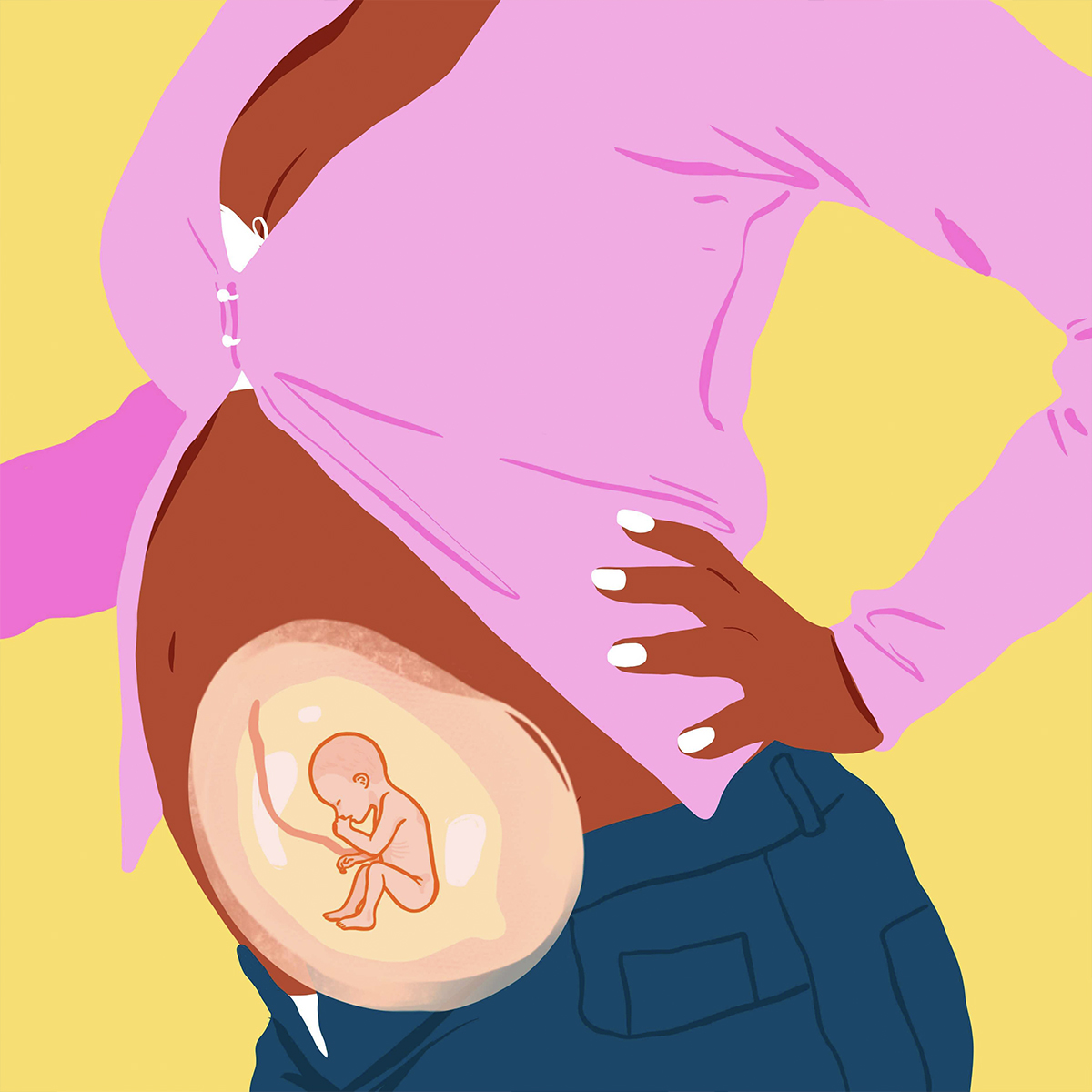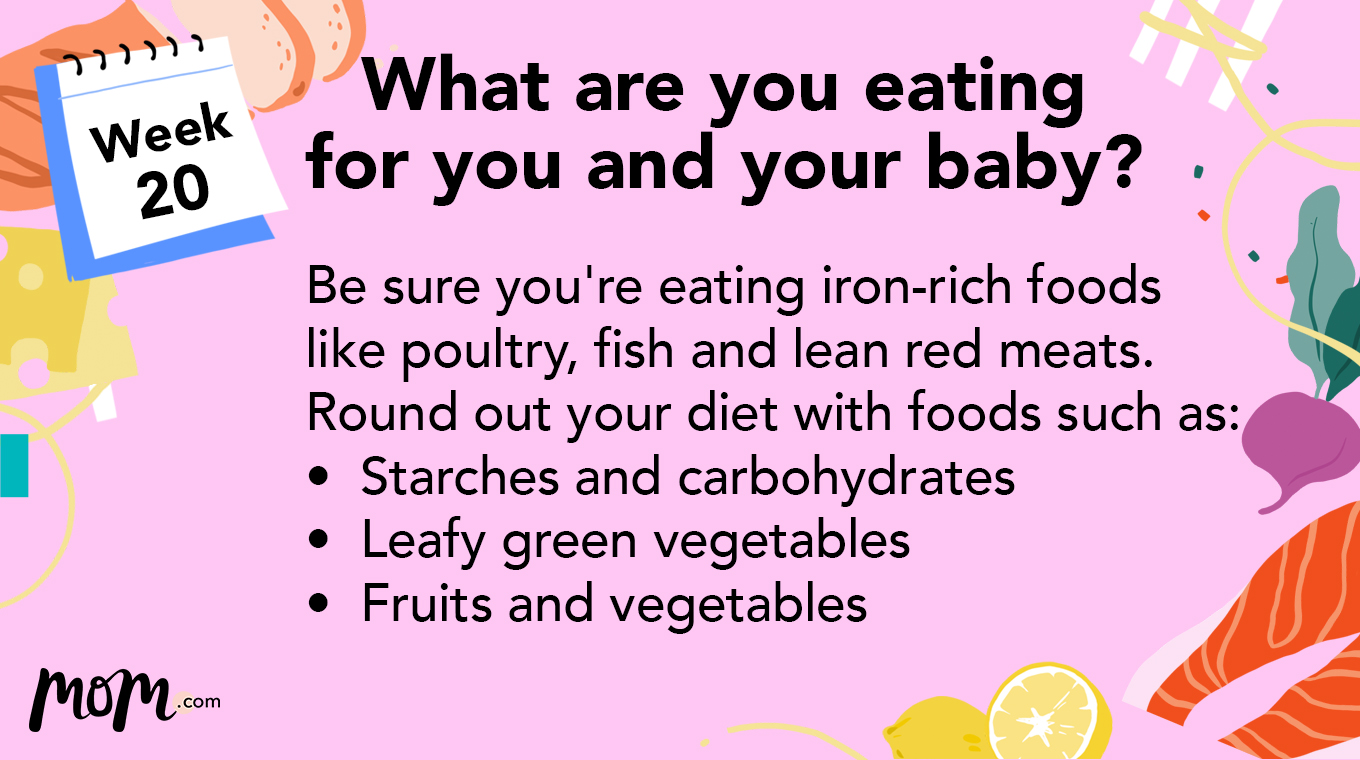
In this article
You’re 20 weeks pregnant!
At 20 weeks pregnant your baby is the size of a reusable water bottle! Which is quite appropriate because right about now you should try to stay as hydrated as possible. Water will help your body absorb the nutrients needed and also keeps amniotic fluid levels optimal. You may start to experience Braxton Hicks contractions as your uterus gets ready for delivery.

Pregnancy symptoms at 20 weeks
In your second trimester, you may notice that your energy levels are up and you feel as though you’re better able to take on more things. You may notice yourself working to get things ready for the baby; thinking of setting up the nursery, prepping meals for when you’re home with baby and thoroughly cleaning your home. This nesting instinct is common in the 5th month of pregnancy and often continues for several weeks.
Dizziness and shortness of breath
Your uterus is expanding and pressing against other organs, and you may notice an uncomfortable feeling and start to feel shortness of breath as your uterus is pushing against your lungs. Climbing the stairs can often find you completely winded, so it’s best to take your time and rest when necessary.
What does 20 weeks equal in months?
At 20 weeks, you’re now considered 5 months pregnant and in your second trimester. You’re halfway there, it’s almost time to meet your new baby.
Your ultrasound
If you haven’t had an ultrasound yet, you likely have one scheduled very soon. Your doctor will be checking to make sure the baby is growing well. The scan will ensure the baby’s spine, brain and heart are all developing well and you’ll be able to take home some adorable ultrasound images of your little one. If you’re lucky and the baby is positioned just right, you may also be able to find out the sex of your baby at this ultrasound.
Your pregnant belly at 20 weeks

As long as you are not carrying twins, your doctor will continue to measure your 20 week pregnant belly to ensure the fundal height is on par. Fundal height measures the length from the top of the uterus to the pubic bone. At 20 weeks pregnant, your fundal height should be around 19 – 20 centimeters in length. Your doctor uses this method to rule out pregnancy issues like breech presentation or gestational diabetes. If you are 20 weeks pregnant with twins, your doctor will focus more on your weight gain to rule out any pregnancy conditions.
Pregnancy tips at 20 weeks
- Your doctor will be checking your weight gain. Ideally you want to start gaining about up to one full pound per week after week 20 of pregnancy.
- You may notice that your legs, ankles and feet are beginning to swell as a result of extra fluids. Elevate your feet when you can and keep salt intake to a minimum. Sudden extreme swelling can indicate a problem so be sure to keep an eye on that as well.
Your pregnancy checklist at 20 weeks
- If you’re signing up for a baby registry, now is the time to do that and get it sent out to friends and family.
- Begin thinking about any celebrations you want to have around your pregnancy; will it be a baby shower or sprinkle party? Do you need to make arrangements for a socially distanced baby shower to accommodate family around the country during the global pandemic? Start making arrangements for this now if it’s something you want to have total control over.
What are you eating for you and your baby?

Iron-deficiency anemia is common during pregnancy so be sure you’re eating an iron-rich diet at 20 weeks pregnant. You can get sufficient iron from foods like poultry, fish and lean red meats. Opt for iron-fortified cereals and ask your doctor if iron supplementation is a good choice for you. Round out your diet with foods such as:
- Starches and carbohydrates
- Leafy green vegetables
- Lean proteins like fish, poultry and red meat
- fruits and vegetables
When to call your doctor
Contact your doctor immediately if you are experiencing:
- Bleeding
- Excessive vaginal discharge
- Excessive cramping
Braxton Hicks contractions are normal and often get better after drinking water, but if you’re experiencing vaginal bleeding or intense cramping be sure to contact your doctor right away. Sudden swelling in the ankles, feet and legs could be indicative of preeclampsia, and also warrant a call to your doctor.
Pregnant women are at a higher risk of illness as a result of a COVID-19 diagnosis and those diagnosed with COVID-19 have an increased chance of delivering pre-term (before 37 weeks), according to the Centers for Disease Control and Prevention (CDC).
Note: If you are visiting your doctor during COVID, be sure to confirm that the doctor’s office is following COVID protocols as indicated by the CDC.
Additional considerations
According to The American Congress of Obstetricians and Gynecologists (ACOG), 14-23% of pregnant women experience depression. Often anxiety and depression during pregnancy are chalked up to hormonal issues, so if you are experiencing signs of depression, it is important to seek help immediately. Depression can be treated.
Note: If you or any of your loved ones are struggling with suicidal thoughts, you can always reach out to the National Suicide Prevention Lifeline by calling 1-800-273-8255. They are available 24/7 by phone or online chat.






